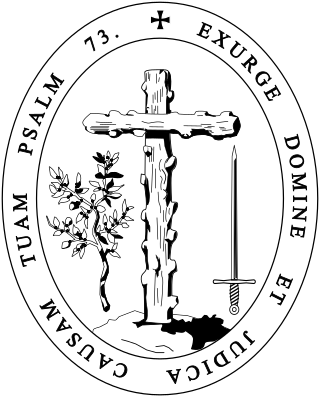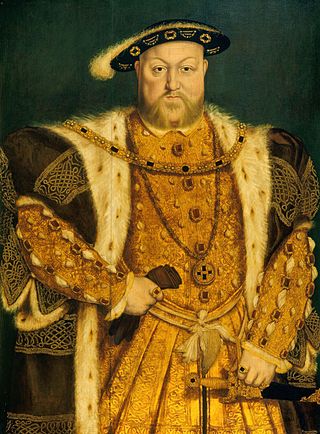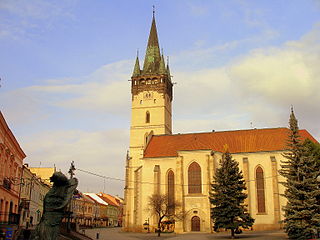
The Inquisition was a judicial procedure and a group of institutions within the Catholic Church whose aim was to combat heresy, apostasy, blasphemy, witchcraft, and customs considered deviant. Violence, torture, or the simple threat of its application, were used by the Inquisition to extract confessions and denunciations from heretics. Studies of the records have found that the overwhelming majority of sentences consisted of penances, but convictions of unrepentant heresy were handed over to the secular courts, which generally resulted in execution or life imprisonment. The Inquisition had its start in the 12th-century Kingdom of France, with the aim of combating religious deviation, particularly among the Cathars and the Waldensians. The inquisitorial courts from this time until the mid-15th century are together known as the Medieval Inquisition. Other groups investigated during the Medieval Inquisition, which primarily took place in France and Italy, include the Spiritual Franciscans, the Hussites, and the Beguines. Beginning in the 1250s, inquisitors were generally chosen from members of the Dominican Order, replacing the earlier practice of using local clergy as judges.
The Roman Inquisition, formally Suprema Congregatio Sanctae Romanae et Universalis Inquisitionis, was a system of partisan tribunals developed by the Holy See of the Catholic Church, during the second half of the 16th century, responsible for prosecuting individuals accused of a wide array of crimes according to Catholic law and doctrine, relating to Catholic religious life or alternative religious or secular beliefs. It was established in 1542 by the leader of the Catholic Church, Pope Paul III. In the period after the Medieval Inquisition, it was one of three different manifestations of the wider Catholic Inquisition, the other two being the Spanish Inquisition and Portuguese Inquisition.

Thomas Cranmer was a leader of the English Reformation and Archbishop of Canterbury during the reigns of Henry VIII, Edward VI and, for a short time, Mary I. He helped build the case for the annulment of Henry's marriage to Catherine of Aragon, which was one of the causes of the separation of the English Church from union with the Holy See. Along with Thomas Cromwell, he supported the principle of royal supremacy, in which the king was considered sovereign over the Church within his realm.
The Reformation, also known as the Protestant Reformation and the European Reformation, was a major theological movement in Western Christianity in 16th-century Europe that posed a religious and political challenge to the papacy and the authority of the Catholic Church. Following the start of the Renaissance, the Reformation marked the beginning of Protestantism.

Pope Paul IV, born Gian Pietro Carafa, was head of the Catholic Church and ruler of the Papal States from 23 May 1555 to his death, in August 1559. While serving as papal nuncio in Spain, he developed an anti-Spanish outlook that later coloured his papacy. In response to an invasion of part of the Papal States by Spain during his papacy, he called for a French military intervention. After a defeat of the French and with Spanish troops at the edge of Rome, the Papacy and Spain reached a compromise: French and Spanish forces left the Papal States and the Pope thereafter adopted a neutral stance between France and Spain.

Bartolomé Carranza was a Navarrese priest of the Dominican Order, theologian and Archbishop of Toledo. He is notable for having been persecuted by the Spanish Inquisition. He spent much of his later life imprisoned on charges of heresy. He was first denounced in 1530, and imprisoned during 1558–1576. The final judgement found no proof of heresy but secluded him to the Dominican cloister of Santa Maria sopra Minerva where he died seven days later.
The historical revision of the Inquisition is a historiographical process that started to emerge in the 1970s, with the opening of formerly closed archives, the development of new historical methodologies, and, in Spain, the death of the ruling dictator Francisco Franco in 1975. New works of historical revisionism changed our knowledge of the history of the Roman and Spanish Inquisitions.

The Tribunal of the Holy Office of the Inquisition, commonly known as the Spanish Inquisition, was established in 1478 by the Catholic Monarchs, King Ferdinand II of Aragon and Queen Isabella I of Castile. It began toward the end of the Reconquista and was intended to maintain Catholic orthodoxy in their kingdoms and to replace the Medieval Inquisition, which was under papal control. It became the most substantive of the three different manifestations of the wider Catholic Inquisition, along with the Roman Inquisition and the Portuguese Inquisition. The "Spanish Inquisition" may be defined broadly as operating in Spain and in all Spanish colonies and territories, which included the Canary Islands, the Kingdom of Naples, and all Spanish possessions in North America and South America. According to some modern estimates, around 150,000 people were prosecuted for various offences during the three-century duration of the Spanish Inquisition, of whom between 3,000 and 5,000 were executed, approximately 2.7 percent of all cases. The Inquisition, however, since the creation of the American courts, has never had jurisdiction over the indigenous. The King of Spain ordered "that the inquisitors should never proceed against the Indians, but against the old Christians and their descendants and other persons against whom in these kingdoms of Spain it is customary to proceed".
The doctrine of the Trinity, considered the core of Christian theology by Trinitarians, is the result of continuous exploration by the church of the biblical data, thrashed out in debate and treatises, eventually formulated at the First Council of Nicaea in AD 325 in a way they believe is consistent with the biblical witness, and further refined in later councils and writings. The most widely recognized Biblical foundations for the doctrine's formulation are in the Gospel of John, which possess ideas reflected in Platonism and Greek philosophy.
The Edict of Torda was a decree that authorized local communities to freely elect their preachers in the Eastern Hungarian Kingdom of John Sigismund Zápolya. The delegates of the Three Nations of Transylvania – the Hungarian nobles, Transylvanian Saxons, and Székelys – adopted it at the request of the monarch's Antitrinitarian court preacher, Ferenc Dávid, in Torda on 28 January 1568. Though it did not acknowledge an individual's right to religious freedom, in sanctioning the existence of a radical Christian religion in a European state, the decree was an unprecedented act of religious tolerance.
Antonio del Corro was a Spanish monk who became a Protestant convert. A noted Calvinist preacher and theologian, he taught at the University of Oxford and wrote the first Spanish grammar in English.

The English Reformation took place in 16th-century England when the Church of England was forced by its monarchs and elites to break away from the authority of the pope and the Catholic Church. These events were part of the wider European Reformation, a religious and political movement that affected the practice of Christianity in Western and Central Europe.
Richard Nykke became bishop of Norwich under Pope Alexander VI in 1515. Norwich at this time was the second-largest conurbation in England, after London.

Heresy is any belief or theory that is strongly at variance with established beliefs or customs, particularly the accepted beliefs or religious law of a religious organization. A heretic is a proponent of heresy.
Juan de Villagarcía was a Spanish Dominican from Valladolid, known as the witness to one of the statements of confession and recantation by Thomas Cranmer.

In 16th-century Christianity, Protestantism came to the forefront and marked a significant change in the Christian world.

The discipline and administration of the Latin Church underwent important changes from 1517 to 1585 during and Counter-Reformation, specifically at the Council of Trent.
Antonio Herrezuelo, also called Antonio de Herrezuela, or Anton Herrezuelo, was a lawyer in Toro. He is considered a Protestant martyr.
Alison MacLeod is a Canadian-British literary fiction writer. She is most noted for her 2013 novel Unexploded, a longlisted nominee for the 2013 Man Booker Prize, and her 2017 short story collection All the Beloved Ghosts, a shortlisted finalist for the Governor General's Award for English-language fiction at the 2017 Governor General's Awards. MacLeod is an occasional contributor to BBC Radio 4, the Sunday Times and the Guardian, and has appeared at numerous literary festivals in the UK and internationally.
Catholic–Protestant relations refers to the social, political and theological relations and dialogue between the Catholics and Protestants.










